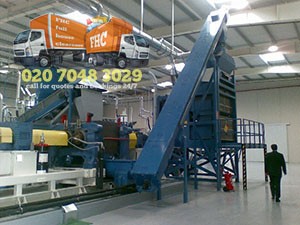Used vehicle tyres are a great source of pollution all around the world. Every year massive amounts of tyres and discarded and destined for recycling. During the last few decades more and more tyre recycling plants have appeared in many countries. Tyre recycling is big business and many companies are looking to make the process more efficient and sustainable through new means of rubber tyre reprocessing.
 Recycled tyres are also a suitable solution for many transport businesses which use regenerated vehicle tyres. Initially, tyre regenerates were not very popular as tyres themselves weren’t as strong and durable as their newly manufactured counterparts. However, with the advancements in tyre recycling technology regenerates have become much better and of higher quality thus their use has also increased.
Recycled tyres are also a suitable solution for many transport businesses which use regenerated vehicle tyres. Initially, tyre regenerates were not very popular as tyres themselves weren’t as strong and durable as their newly manufactured counterparts. However, with the advancements in tyre recycling technology regenerates have become much better and of higher quality thus their use has also increased.
Growth of trade and commerce means more freight is transported by road which in turn means freight vehicles require fresh tyres more often than before. In result, the number, size and capacity of tyre recycling facilities around the world is growing.
Recently, a German waste management company opened the largest tyre recycling factory in the world in Houston, Texas, US. The plant managed and operated by the German company Genan has a staggering capacity to recycle one hundred thousand used tyres per year. The cost for constructing and putting the plant in operation was nearly hundred and fifty million dollars. However, the potential for investment return and the profitability of the plant are expected to outweigh its construction costs by many times. Nowadays, recyclable waste is increasingly becoming a valuable commodity and many waste management companies are capitalising on it. This is also good news for the environment as quickly diminishing natural resources require sustainable use and means of production for new goods, like tyres for example.
The Genan tyre recycling plant in Houston uses an advanced form of processing technology which allows for the effective separation of steel from rubber in end-of-life vehicle tyres. Steel wiring is present in the base rubber layer of any vehicle tyre in order to make it stronger, more flexible and retain its structural integrity. Genan say the derived steel and rubber is of high quality and durability which makes it a good substitute or additive to virgin production of steel and rubber.
The company states that for each tonne of tyres recycled in any one of their processing facilities around the world, they save one point one tonnes of carbon dioxide emitted by incineration of tyres in kilns.
If your business produces a certain amount of tyre waste on annual basis which is quite common for many companies in the respective industries, you have the option of using a specialised waste removal service to remove and dispose of old tyres appropriately. Specialised commercial junk removal companies offer such services. Business owners might also be able organise the removal and disposal of tyre waste through local authorities. In some cases this might draw certain benefits to the business like tax rebates, lower pollution fees etc. Tyre reprocessing is one of the most efficient examples of waste recycling right now.



